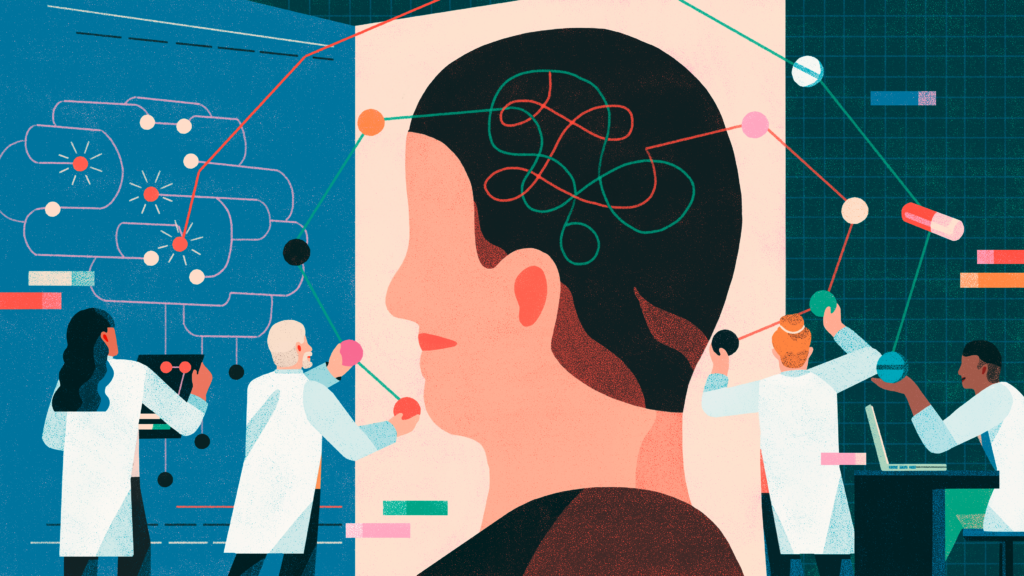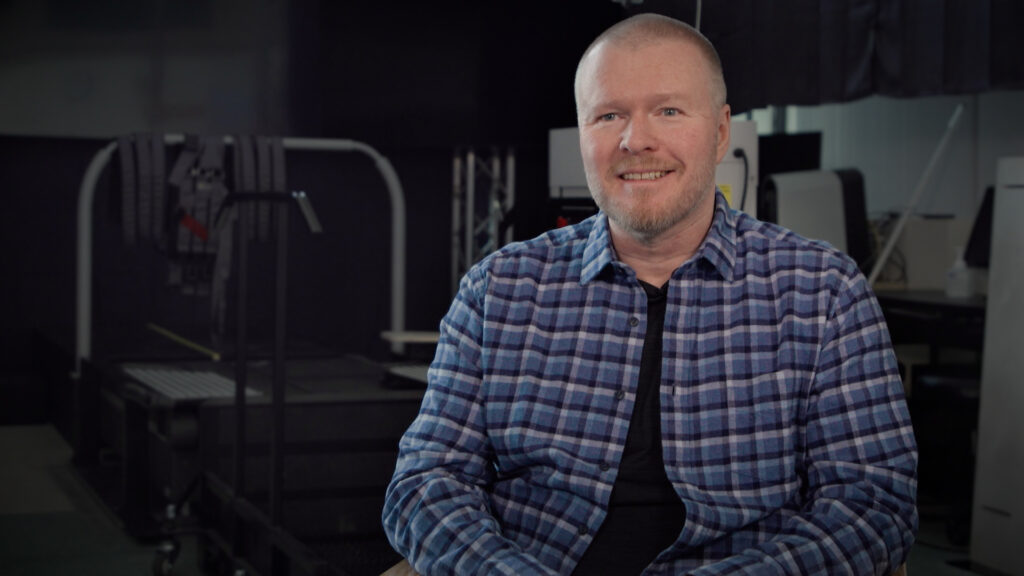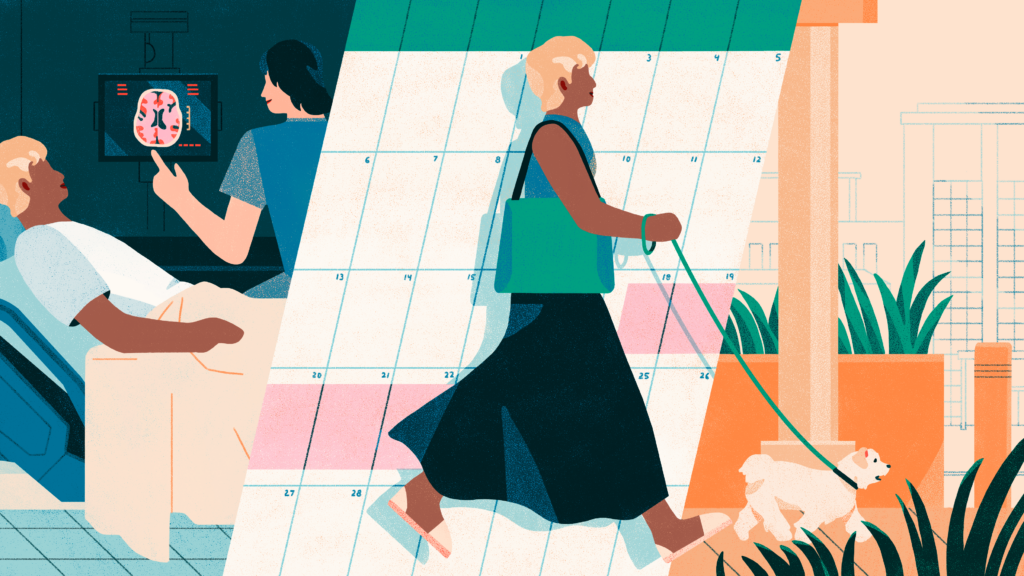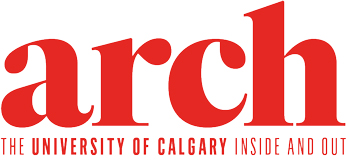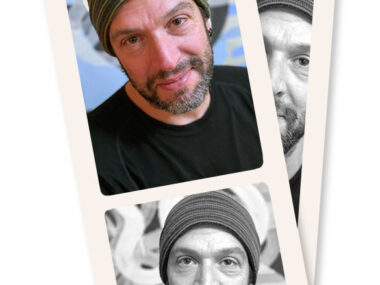Written by Jacquie Moore, BA’97
As a child growing up in Kerala on India’s southwestern coast, Dr. Bijoy Menon was encouraged to ask questions — a lot of questions — of his parents, his teachers and anyone else willing to examine the status quo.
The state of Kerala has the highest rate of literacy and education in India, and Menon — now a neurologist and professor at the University of Calgary’s Cumming School of Medicine (CSM) — feels lucky to have grown up in “a culture of social consciousness and inquiry of ideas and conventions.” His dad, an engineer in the armed forces, further emboldened Menon to develop a (disarmingly pleasant) contrarian nature.
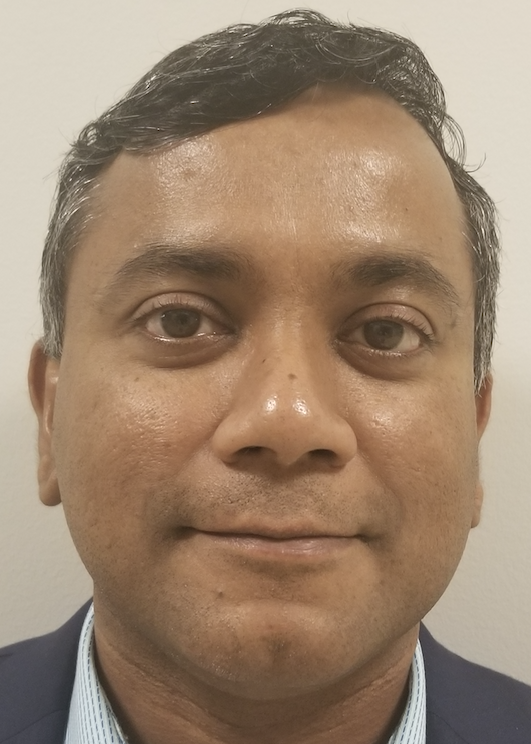
“My father taught me to question the accepted viewpoint,” says Menon, MSc’15, MD, DM.
It’s not surprising then that, from a young age, Menon assumed that was how the whole world operated — with every opinion and observation open to debate and discussion. Medical school only stoked his inquisitive nature. One of his mentors was the renowned neurologist Dr. V.S. Ramachandran, MBBS, PhD, inventor of mirror-box therapy for phantom limb pain, who urged Menon to challenge every diagnosis and treatment plan.
“He would give his opinion on a patient, then ask if I agreed with him,” says Menon. “If I did, he would take the opposite view and ask me again. I learned very quickly that he wanted me to question everything.”
After medical school, while Menon completed a fellowship in Zurich, he heard about cutting-edge acute-stroke imaging taking place at UCalgary and applied to the Calgary Stroke Fellowship Program. He soon found himself immersed in an unrelentingly investigative culture. “I could challenge everything; there was no question I couldn’t ask,” he says. “There was, and is, a free spirit of inquiry.”
Global Impact
Unlike a medical residency or internship, a fellowship is optional training for an already-accredited doctor who wants to deepen their knowledge and experience of a subspeciality. Landing, and completing, a fellowship post isn’t easy and a doctor with “fellowship-trained” on their CV indicates they have achieved a high-water mark in their field.
The Stroke Fellowship Program, which operates out of the Foothills Medical Centre in partnership with the Department of Clinical Neurosciences, Alberta Health Services and CSM is one of the premier subspeciality stroke-training hubs in the world. Supported in part by local Calgary philanthropists, the program was co-established and is led by neurologist and professor Dr. Andrew Demchuk, MD, who was inspired by the rigour and inclusivity of the multidisciplinary unit rounds during his time as a fellow at the University of Texas-Houston. Since 2001, the two-year program’s integrated stroke-management faculty and staff have trained 125 physicians from all over the world in the areas of acute stroke, stroke rehabilitation, stroke prevention, stroke research and clinical-trial management.
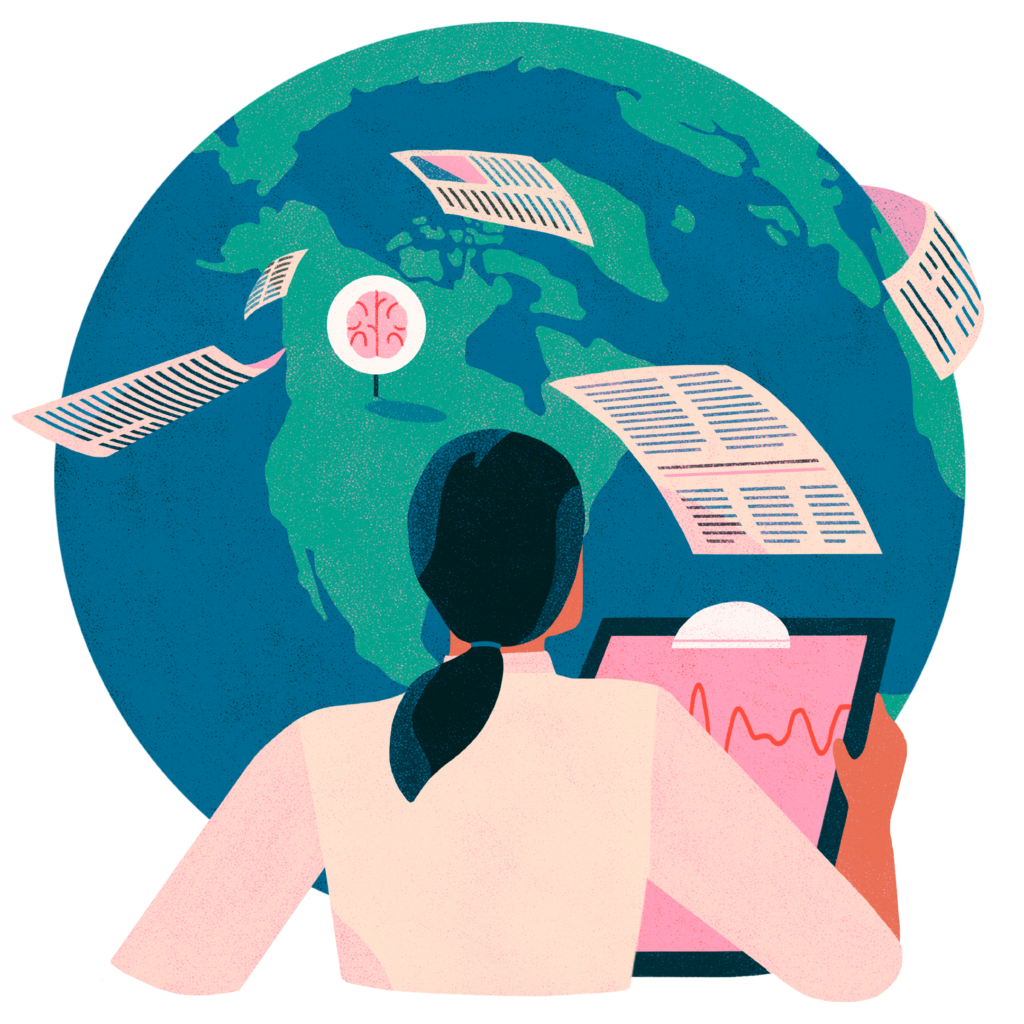
It’s not an entirely over-the-top metaphor to think of Calgary as the Marvel Universe headquarters sending highly trained stroke-Avengers across the planet. The impact of the fellowship training has transformed stroke care by cultivating a global network of what Demchuk calls “stroke champions” who go on to establish major stroke centres and lead best practices in stroke research and care in this country and around the world. Nearly every stroke-care centre and tertiary stroke-care program in Canada now staffs a graduate of UCalgary’s prestigious fellowship program.
“That’s what Dr. Demchuk does,” says Menon. “He makes sure every big centre has a stroke champion — someone passionate about stroke education and research, someone who has the knowledge and experience to participate in multi-centre trials, a person to present at conferences, etc.” In essence, “they take the practices and the feel of the Calgary Stroke (Fellowship) Program to their own centre.”
Questioning, Challenging and Collaborating for Better Treatment Outcomes
The significance of elevating and expanding expertise in research and care cannot be overstated: stroke is the leading cause of disability worldwide and the second leading cause of death according to the World Stroke Organization (stroke is the third leading cause of death in Canada). The path to changing those statistics for the better is, of course, the discovery of improved treatments and cures, but it’s also their effective dissemination.
The latter, says Demchuk, takes tremendous “leadership, collaboration, consistency, and transparency at local, regional and national levels to champion practices, clinical trials and transform approaches in systems that have to function around the clock, 365 days a year.”
The culture of the Calgary Stroke Fellowship Program is deeply ingrained with what Demchuk has heard referred to as “the X Factor,” a way of operating that new fellows sometimes find initially uncomfortable. Indeed, young doctors enter the program from medical schools and stroke units from across the globe with their varied experiences and cultural norms. Unlike Menon, some would never have been encouraged to challenge a senior neurologist’s opinion. Demchuk and the stroke team at the CSM, however, are counting on it.
“Sometimes, the bright ideas come from these young fellows who become the Bijoy Menons — their ideas can change the world,” says Demchuk.
In addition to intense clinical training, Demchuk is committed to “providing our fellows with 21st-century leadership,” which he defines as leadership underpinned by inclusion, transparency and service to others.
“It’s a leader’s job to add to a person’s success as often as possible, if not every day,” Demchuk says. “Our job is to work with our junior people and constantly ask ourselves if we’re doing something to improve, not subtract from, their experience.” Proof of the profound power of such an approach can be witnessed in action every Thursday at 7:30 a.m. during the program’s legendary weekly stroke-case rounds.
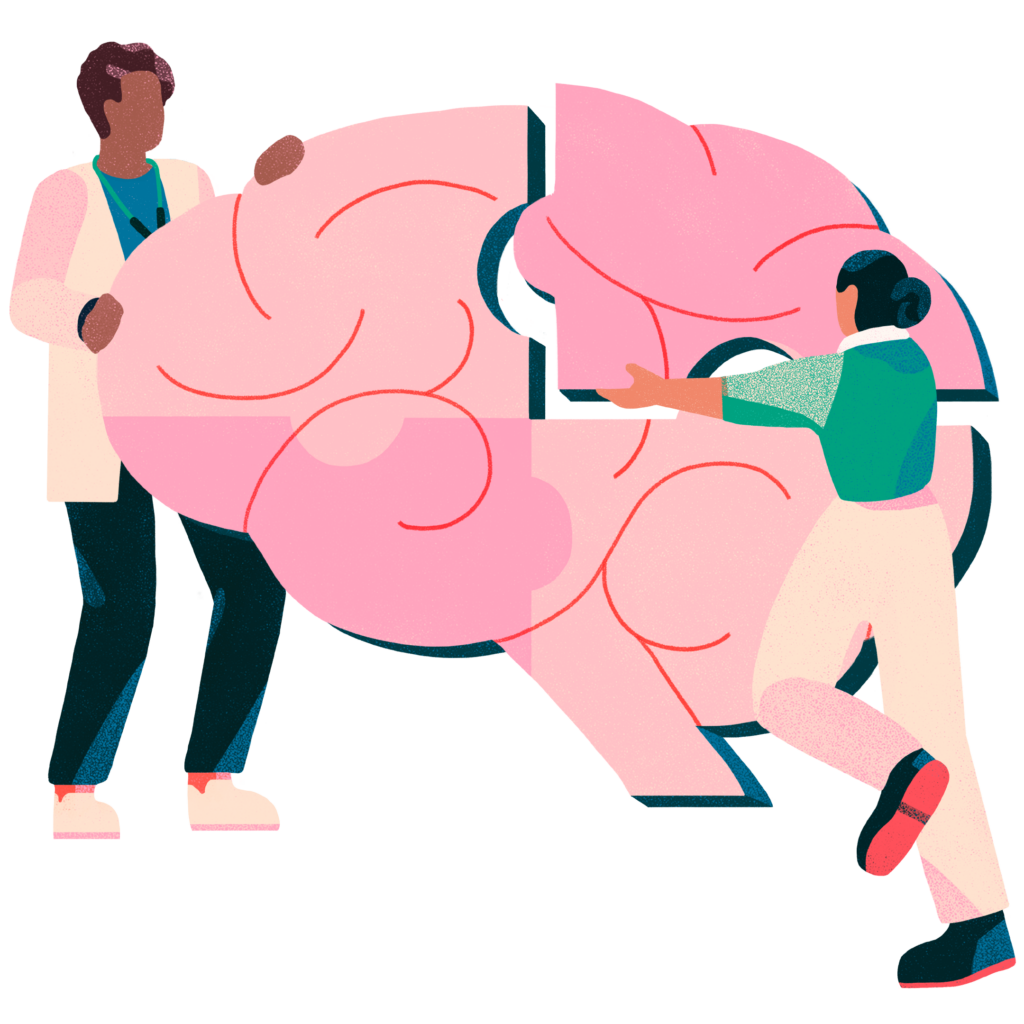
Attended by a revolving crew of medical experts from neuroradiologists and surgeons to nurse practitioners, residents and the annual cohort of eight or so fellows, the rounds, says Demchuk, “are a terrific opportunity for the best thinking and the best debate around some difficult decision-making, and the best research and improvements to management and care.”
Dr. Marie-Andrée Panzini, MD, who will soon wrap up her fellowship post, was completing a neurology residency at the University of Montreal when a mentor suggested she apply to Calgary’s program.
“He knew I would fit in because I love medical education and I love making progress with a team,” says Panzini, adding that, before she even started the program, she understood “one of the big strengths here is the approachability and humanity of the leaders and researchers. I’ve never met such an encouraging, positive group of people.”
As soon as she looked into applying, she knew she wanted to join the family.
Panzini, who holds the program’s Whitney Barham Fellowship, has been constantly astonished by the collaborative energy of the Thursday morning rounds. “Even if I am on shift in the stroke unit all night, I look forward to going along for the rounds,” she says. “The leaders’ minds are so strong and they really challenge us — without blame, we are asked, ‘Why did you do it that way?’ It’s just very academic, collegial discussion.”
In July, Panzini will return to Quebec to work at the Le Centre hospitalier de l’Universite de Montreal. She’ll take newfound leadership skills with her as well as new techniques in neurosonology (ultrasonic imaging of the brain) and she now feels prepared to help plan and participate in multi-centre clinical trials. Transformed by experiences she didn’t have a chance to develop in her residency, Panzini says she “has new confidence in my clinical judgement and decision-making.”
In the past year and half alone, the fellowship program saw its graduates off to stoke centres and units in Mumbai, Toronto, Vancouver, Kelowna, Halifax and, particularly notably, Winnipeg, where fellowship program alum Dr. Nishita Singh, MD, DM, was appointed the University of Manitoba’s inaugural Heart and Stroke and Research Manitoba Chair in Clinical Stroke Research.
Occasionally, however, we get to keep these superstars in Calgary’s orbit. As Demchuk puts it, “the fellowship program can sometimes serve as a two-year job interview.” Indeed, Demchuk himself was once a fellow as were renowned neurologists and professors Dr. Mohammed Almekhlafi, MD, MSc’12; Dr. Philip Barber, MD; Dr. Shelagh Coutts, MD; Dr. Michael Hill, MSc’03, MD; and, of course, Menon.
In Menon’s case, he uprooted his young family, including his wife (now an internal medicine doctor) and then-two-year-old son more than a decade ago to train and embark on globally transformative clinical trials and stroke-imaging research here in Calgary.
Stroke Hits Home for Doctors, Too
One day last summer, Menon got an urgent call from his brother — a cardiac surgeon — in Kerala. It was 4 p.m. Calgary time; 3 a.m. in India. Menon’s father, who was struggling with dementia and had a history of heart disease, had suffered a stroke in his sleep. Menon’s mother didn’t know exactly what time the stroke occurred but, in the middle of the night, she sensed something was wrong.
The hospital in Kerala’s capital city, Thiruvananthapuram, is home to a cutting-edge, comprehensive stroke program established and led by an alum of the Calgary Stroke Fellowship, neurologist Dr. P.N. Sylaja, MD, DM. Despite excellent care, Menon’s father passed away three weeks after his stroke.
Devastated as he is, Menon takes comfort in knowing that his father received the best treatment possible — on par with what he would have received at the Foothills Medical Centre stroke unit in Calgary, thanks in large part to the network created by the fellowship program.
In his grief, Menon is only galvanized to drive yet deeper into research that addresses the gap in detection of stroke in sleep or when a patient lives alone. “We’re working on developing technology for when a patient presents with a stroke after waking up or late after its occurrence,” he says. Menon’s belief in the power of research, fuelled by fearless inquiry, is unwavering.
As Menon and Calgary’s diverse family of stroke experts, educators and students at every level prove time and time again, it’s only by asking questions, staying open, assuming nothing, and relying on one another to listen, challenge and share, that stroke outcomes will continue to improve. A growing world of fearless stroke champions are on the job.
Learn More About Stroke
